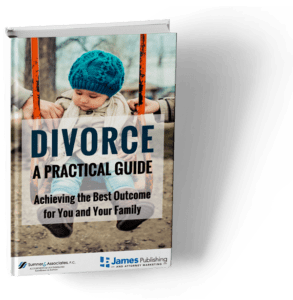 While a couple often chooses to divorce for their own personal needs, child custody matters are an entirely different story. Neither parent’s personal preference will carry much weight: what will be considered is the best interests of the child. The court takes into account several “best interest factors” when making that judgment. Here we’ll discuss what those best interest factors are and how the court is likely to render its decision.
While a couple often chooses to divorce for their own personal needs, child custody matters are an entirely different story. Neither parent’s personal preference will carry much weight: what will be considered is the best interests of the child. The court takes into account several “best interest factors” when making that judgment. Here we’ll discuss what those best interest factors are and how the court is likely to render its decision.
If you need a divorce attorney who will advocate your side of the issue, Sumner & Associates P.C. has handled several divorce cases and understands that dealing with embattled ex-spouse is not always a simple process. Call us today for a consultation.
1. Health and Safety of the Children
One of the most important best interest factors that the court will consider is the health and safety of the child or children. The court will consider each parent’s willingness and capacity to foster a healthy home environment. This includes necessities like food, clothing, and medical care. The court will take into account the physical and mental health of the parent as well. If the parent has a history of violence or abuse toward the spouse or the children, the courts are very likely to consider suspending visitation entirely.
2. Emotional Needs of the Children
Another best interest factor that the courts consider is the emotional needs of the children. Most courts believe that disruptions to a child’s home life can have potentially damaging effects, at least in the short term.
Therefore, every effort is made to ensure that the child’s home life is disrupted as little as possible. This includes giving primary custody to the parent who has spent the most time with the child. It also includes considering whether or not the parent intends to move the child to another home or a different school district. That kind of routine is good for children. Because divorce can be tough on children, the courts want to see that there is as little disruption to their routine as possible.
A child who is old enough and mature enough to state a preference for one living situation over the other may have that considered by the court. The court, however, is under no obligation to place the child with the parent of their choice. In the end, the child’s preference is one factor among many.
3. Co-Parenting Skills
Unless one parent is abusive, a drug abuser, or has an untreated mental health issue, most courts believe that it’s in the best interests of the child to have both parents in their life. It’s therefore important to the courts that whichever parent is granted custody in a dispute will honor visitation arrangements. If one parent is using visitation as a way to hurt the other parent, the court may seriously consider placing the child with the other parent.
4. Child’s Education
As stated earlier, the parent who chooses to live in the school district that child has grown up in may be considered a better parent for primary custody. Furthermore, the degree to which the parent takes an interest in the child’s education is important to the court. Which parent will spend time helping the child with their homework? Which parent has the time to help their children with homework? These are important considerations and major best interest factors when considering which parent has primary custody.
5. Morality of the Parent
The court may consider certain moral decisions that a parent makes but only insofar as it affects the moral development of the children or puts them at risk. For instance, a parent with an active drug problem may be able to hold a full-time job but would not present the child with an ideal environment in which to grow up.
Understanding Best Interest Factors
It’s important for both parents to sit down and discuss what they believe would be in their children’s best interests. Ultimately, parents should be able to come to some agreement about how their children divide their time. This agreement is then approved by the judge and becomes legally enforceable. It’s important to both the children and the parents that this happens as seamlessly as possible.
Contact a Michigan Child Custody Attorney Today
A Michigan child custody attorney can help you amend or object to a child custody arrangement that you feel is not in the best interests of your children. Sumner & Associates P.C. will help you make your case to the court. Call us today to talk about what to expect when the courts make custody determinations.

